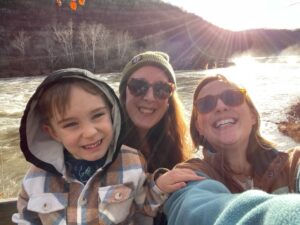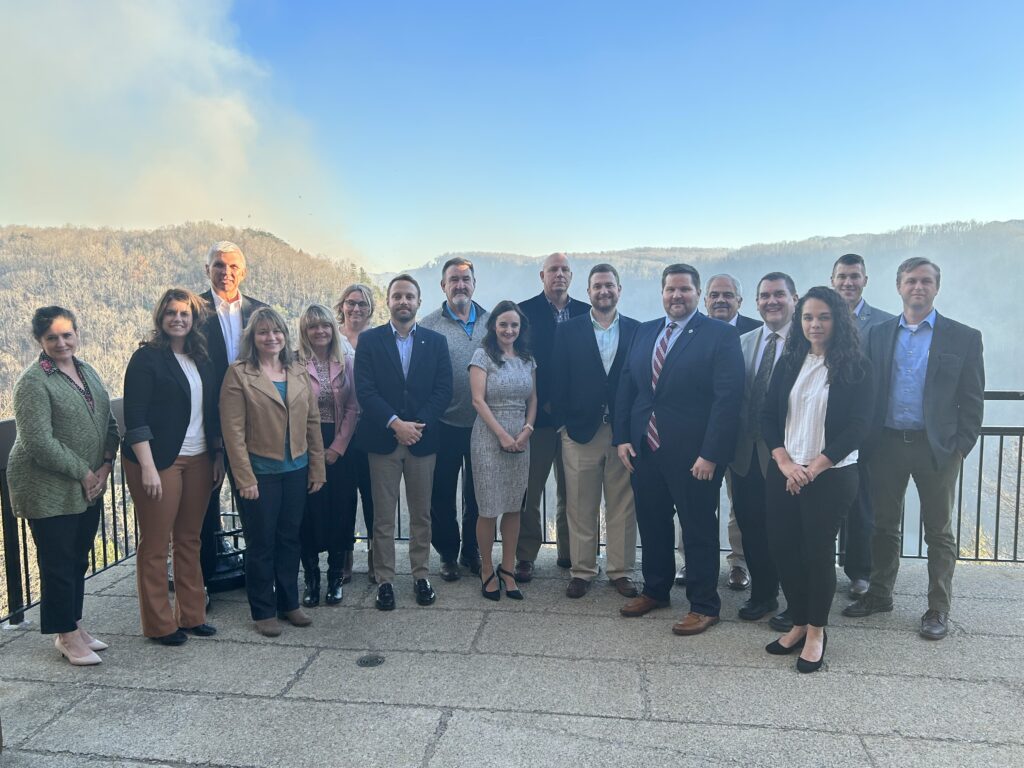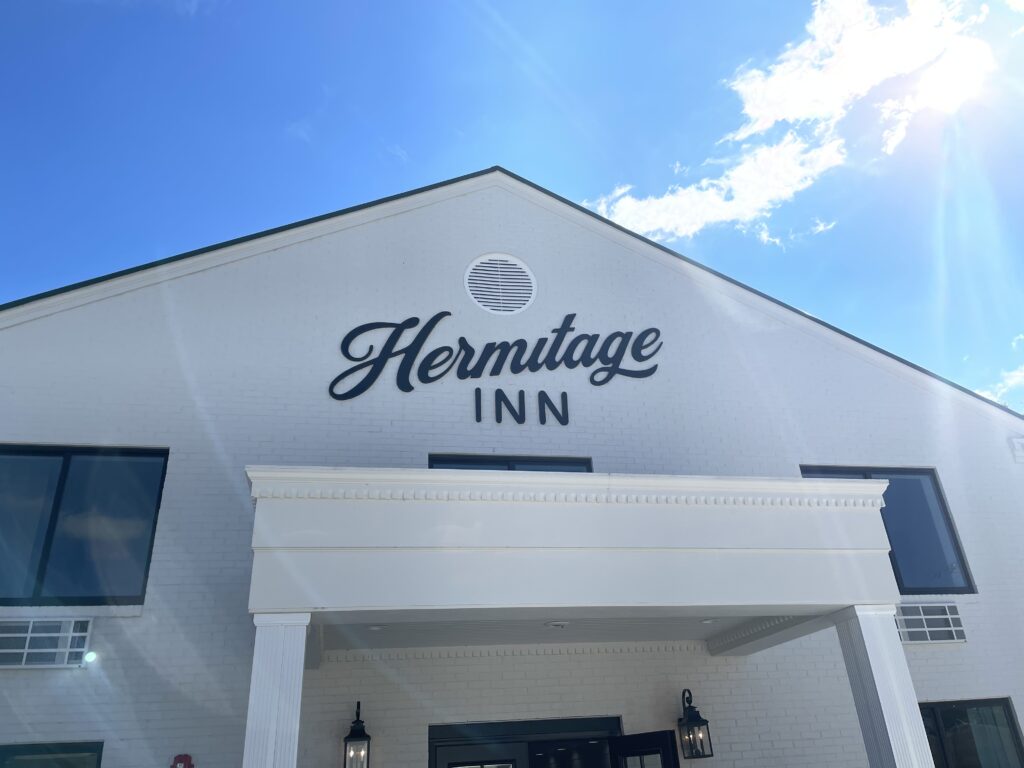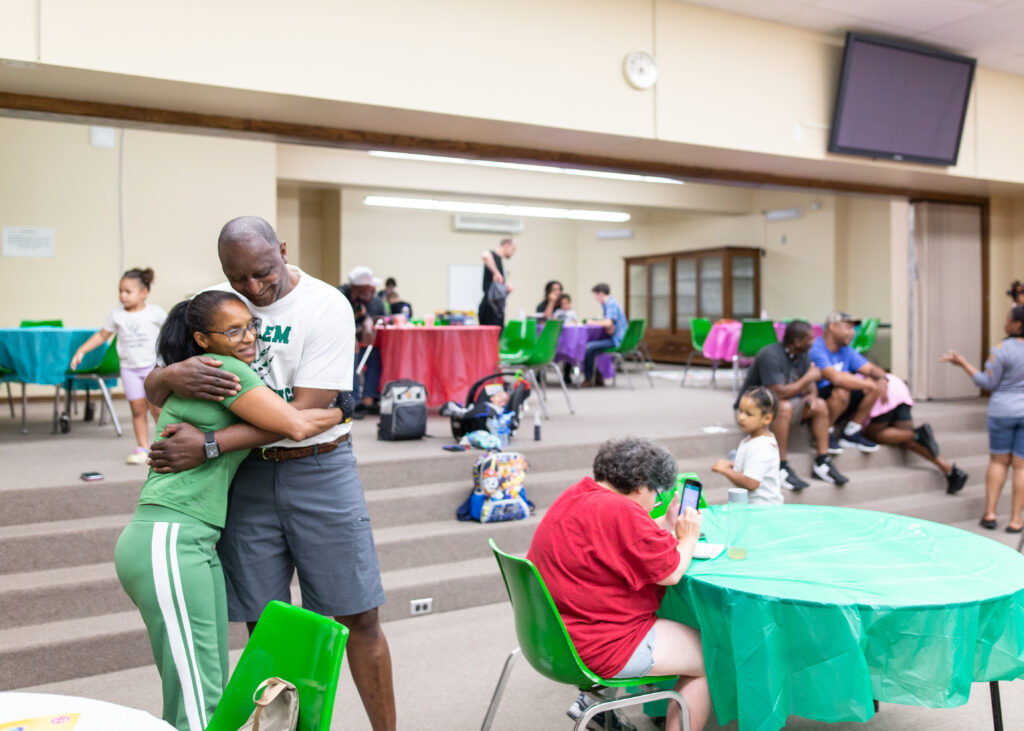
floyd county, kentucky community case study
Floyd County, Kentuckycommunity case study in Floyd County, Kentucky, community members found strength in growing their table. Located in the eastern part
As part of their year in service, AmeriCorps VISTA members complete an MLK Day of Service Project. This year, AmeriCorps VISTAs placed in Hub communities interviewed community members about the BIPOC experience and history in West Virginia. Here are the stories they found and recorded as part of their MLK Day of Service Project.
We celebrate our Wild and Wonderful West Virginia every year on June 20. This day marks the succession of several counties from Virginia during the Civil War in 1863 to form our state.
West Virginia has a rich history and that history includes many BIPOC West Virginians, many of whom have done amazing work for their communities. Our AmeriCorps VISTA members completed an MLK Day of Service Project earlier this year where they got to explore the history of WV, hear first-hand experiences of what it has been like growing up here, how some took action to try and make changes, and learn new perspectives.
Dara Vance who served with the Meadow River Valley Association had the opportunity to interview William Hal Gorby, Ph.D. from the Department of History at Eberly College of Arts & Sciences with West Virginia University.
Dara and Dr. Gorby discussed some of the rich histories of WV and many aspects of the slave trade that many refrain from discussing. Regarding some of the history of WV, Dr. Gorby shared, “There are perceptions that West Virginia did not have a lot of slaves, but slavery does play a major role in the state’s history prior to the Civil War. There are a few recent works that are trying to frame that story out a little more because that is not the predominant [one] that is presented.”
Dr. Gorby continues, “While slavery plays a small role it is predominant in the southern counties, particularly the ones that border Virginia, one of which is Greenbrier County. Partly, I bring up slavery because there is no plantation-style agriculture, most of those slaves are being leased out from Tidewater plantations to work at the white or other resort communities doing serving. Many others were leased out to the Kanawha salt works. Slaves are moved from the eastern part of Virginia to the west and then back. There is a slave population, but it is not rooted as long term in these areas.” Slaves in WV were freed in 1865 when WV Legislature passed the act abolishing slavery on February 3.
Digging into more of the historical BIPOC experience in WV, Dr. Gorby continues, “[T]here was a tighter community because of how small the population was. There was racism and the Klan and discrimination and segregation – but they were not disenfranchised – and the coal industry did not pay different rates. You were paid on the tonnage, [and] you are all exploited by the operator – but in a certain way, everyone has the danger. The more complicated part is everyone is dealing with the same socio-economic systems. And because of how small the populations [were] overall, in those southern counties, like McDowell, that allowed for resources to be allocated equally to black and white schools for instance. In the idea of separate but equal, African Americans demanded and received the books, accommodations, and supplies that were the same [as] their white counterparts. There were very strong African American schools, [and] chapters of the NAACP – there was equal funding. Equal access to health care – there was a state-level office, basically from the 20s to the 50s there was a state office dedicated to the study of the African American experience in the state and they kept great statistics – and people in office and politics could use that data to ask for resources and money. Probably in terms of segregation is that in 1921 West Virginia passed a law that penalized lynching – punished the individual and also the county if they did not prosecute. It was one of the few states to pass such legislation when the southern states refused.”
Heather Shifflett who serves with the Town of Cowen was able to interview her grandmother Charlotte McClung, wife of James McClung on his employment with the Civil Rights Commission.
Heather’s grandfather James was “born on June 11, 1929, in Mount Lookout” and he “majored in philosophy at Alderson Broaddus in Philippi, West Virginia and later went to seminary in Rochester, New York.” James served as a minister and felt strongly about how minority communities were being treated in our country.
After news of the murder of Medgar Evers, an American Civil Rights activist, in June of 1963 broke her grandfather felt the need to act so he switched careers and was “hired by the Civil Rights Commission in Detroit, Michigan.” James served as a mediator. Her grandmother, Charlotte, remembers when James was sent to Mississippi during the Brown v. Board of Education of Topeka. “He was part of the March on Washington for Jobs and Freedom in August 1963 where Dr. Luther King Jr. gave his famous speech ‘I Have a Dream.’”
Courtney Summers who serves with the West Virginia Community Development Hub was able to interview community coach Sherri James about her experiences growing up in and around WV.
Sherri was born in WV but moved to Ohio at the age of 3. She spent her summers in Clarksburg, WV with family and friends before moving back full-time in the 80s. Recalling her family Sherri shared, “We’re probably 4 generations West Virginian. Prior to that, both sides of my family are from Alabama.” She shared that her family was able to take part in many historical moments of American history including D-Day of June 6, 1944, of WWII and marches with Dr. King in the 60s.
Regarding her time in Clarksburg, Sherri shared that “there was a time when African Americans could only live in certain areas, so the African community as I was growing up was concentrated on several 4 or 5 streets. And so the churches were also in that area so everyone knew everyone. We all went to the same church, all went to the same schools.” Despite this segregation, her family and friends “did things like have picnics and the parents would give us things to bring out. Of course, we would do our baseball games and dodgeball games. We were definitely outdoor kids. We would ride our bikes.”
Sherri James is involved with the Kelly Miller Community Center in Clarksburg which historically “was the African American school during segregation.” Today the center serves as a place for the community to come together with a free library, exercise classes, gym, events, and more.
She shared her hope for the future, “My vision is for our folks to have a good home, good health, enough food to eat, safe environment. Those are just the basic things, but also want our community members to feel safe in our community . . . that basically that they’re happy and feel safe.”
Jakeya Perrin who serves with the West Virginia Community Development Hub had the chance to interview Tori Banjoman who works at WVU Hospital. Tori shared that “three generations of [her] family are West Virginians.” Tori grew up in WV and she chose to pursue her degree here and then stay to start her career.
Tori shared, “I think that being a black woman in the medical field of WV has definitely impacted my experience. By being involved in WV healthcare, I’ve been able to educate others [about] some black cultural differences that they might have never had the opportunity to experience elsewhere. Words of advice: do not let the color of your skin deter you from pursuing your dream career in WV.” She “believe[s] that it is very important for black and brown people to enter the medical field. Personally, I believe that black and brown patients’ outcomes would benefit if their healthcare team included people that share similar cultures/experiences.”
The BIPOC experience has not always been a good one, at times it was cruel and inhumane. West Virginia has a rich history and its people have a variety of lived experiences. Part of our history includes AmeriCorps VISTA members who work in communities all over our state to alleviate poverty and build capacity. We hope VISTA members and community members alike continue to step up, learn from the past, and pave the way for a brighter future in WV.

Floyd County, Kentuckycommunity case study in Floyd County, Kentucky, community members found strength in growing their table. Located in the eastern part

Greater Peoria, Illinois is part of The Hub’s second Building Resilient Economies in Coal Communities (BRECC) cohort and the team is getting

Emma Byrne, Director of Impact We at The Hub are thrilled to announce the newest addition to our team, Emma Byrne. Emma

Our work is made possible thanks to incredible partnerships with other community development organizations across the state. From local economic development authorities (EDAs) to state level nonprofits working to uplift communities, all of our partners are crucial in making West Virginia the best it can possibly be by working together.
One partner that made our work truly profound this year is Coalfield Development. For years, Coalfield Development has worked to rebuild Appalachian communities by inspiring the courage to grow, activating the creativity to innovate, and cultivating communities of opportunity in central Appalachia.
We are proud to be part of Coalfield Development’s ACT Now Coalition, a broad network of organizations working hand-in-hand to uplift communities throughout Southern West Virginia. The ACT Now Coalition is infusing more than $63 million into programs to help communities using business development, building revitalization, and so much more.
The Hub is leading the Community and Business Resilience Initiative as part of the larger ACT Now Coalition to bring other partners with us to build up community and business resilience in the Coalition’s footprint.
“For decades, we’ve known the economy of southern West Virginia needs diversification. Some progress has been made on this goal, but not nearly enough,” Brandon Dennison, CEO of Coalfield Development, said about the ACT Now Coalition. “ACT Now constitutes a tangible opportunity to take a major leap forward in this generational challenge to become a vibrant, growing, diversified economy. In the wake of continued coal-job losses, nothing could be more important for our region.”
Our partnership with Coalfield Development is giving us a chance to take our work to new communities and to build upon our years of experience. Working alongside Coalfield Development in this large undertaking to bring $63.8 million to communities in Southern West Virginia is validation that the work happening to uplift West Virginia communities continues to grow.

The Hub works alongside communities across West Virginia coaching community teams as they come together to make transformative changes in their towns. In 2022, one town stands out for its continued work and unwavering commitment to making its community a place where people want to live, work, play, and visit.
Petersburg, located in Grant County at the northernmost point of the Mon Forest, is filled with community members who want to make their town a destination. Not only have businesses opened, and stayed open, the town has transformed the way they present to the world through rebranding and outdoor recreational development.
As part of the HubCAP IV program, Petersburg utilized its technical assistance to push forward with projects to bring transformative change to its community. Part of the work Petersburg worked towards was creating plans to pave a hike and bike trail that runs along the Petersburg dike. The proposed trail will run approximately three miles along the Petersburg dike and will include multiple entrances for walkers and bikers. The group secured a $25,000 grant from Senator Hamilton, which was matched locally by the City of Petersburg, the County Commission, and the Board of Education, each adding an equal share to bring the total to $50,000.
This year, Petersburg witnessed a major upgrade to one of the town’s most iconic and historic structures: The Hermitage Inn. The hotel, which dates back to 1841, has been renovated and once again welcomes guests to stay the night and have a nice dinner in the restaurant.
The Hermitage Inn is the first project initiated and completed as part of the Downtown Appalachia: Revitalizing Recreational Economies (DARRE) program. Seeing the old hotel returned to its majesty has been an incredible development for Petersburg adding another jewel to the downtown area.
Seeing Hub communities come together to create transformative change thrills us. Community members are the subject matter experts on what their towns need. Our commitment to accompaniment and walking alongside communities as they do the hard work guides us in our work. Celebrating their victories with them gives us a moment to uplift those making the work happen.

Since 2018, The Hub has been working diligently to bring Diversity, Equity, and Inclusion into our work. For years, the organization has been working internally to expand on one of our core values: “We believe diversity creates strength.”
We believe that now is a time when we must work from the ground up to commit to long-term efforts to build power through leadership development, programmatic strategies, and partnerships that commit to building power and advancing racial equity.
Looking back at our organizational history, we acknowledge that our work in rural communities with populations of less than 15,000 has not reached a diverse cross-section of people in West Virginia. Because of this, we began to ask, “Who isn’t here?” when examining our involvement in communities. The social unrest in 2020 led us to examine our role in white supremacy, ableism, classism, and gender discrimination, and the ways we have perpetuated unjust systems in our communities and across West Virginia.
Since 2020, our equity journey has included a staff racial equity learning series, making internal commitments to increasing our hiring and retainment of diverse staff including creating full-time Racial Equity Fellowship and VISTA positions, committing to increased coaching for rural communities of color across the state, and tackling the inherent challenges of advancing equity across the community development field within a highly rural, majority white state where Black and brown leadership has been historically marginalized and under-invested.
Our belief in the power of local people to see the value and the potential of their place, and of each other, is at the core of our belief in the potential we have to build power in West Virginia to advance racial equity, inclusion, and accessibility while disrupting systems that have historically excluded some communities.
We are committed to engaging in conversations to uplift communities and leaders of color to move from talk to action on why race matters in West Virginia as we work to disrupt these systems. We will support investment in Black-led organizations and rural Black leadership. And we are committed to driving public and private investments into these spaces, both organizational and geographic.
A core team led by Unleash Tygart, Inc participated in Opportunity Appalachia, receiving technical assistance to support a community development project located in an Opportunity Zone.
Core teams led by Thundercloud, Inc. and the City of Huntington participated in Opportunity Appalachia, receiving technical assistance to support community development projects located in Opportunity Zones.
A core team led by Crawford Holdings, LLC participated in Opportunity Appalachia, receiving technical assistance to support a community development project located in an Opportunity Zone.
Residents participated in round 4 of The Hub’s capstone Communities of Achievement program with a focus on building local recreational economies.
Residents participated in round 4 of The Hub’s capstone Communities of Achievement program with a focus on building local recreational economies.
Residents participated in round 4 of The Hub’s capstone Communities of Achievement program with a focus on building local recreational economies.
Residents participated in round 4 of The Hub’s capstone Communities of Achievement program with a focus on building local recreational economies.
Residents participated in round 4 of The Hub’s capstone Communities of Achievement program with a focus on building local recreational economies.
A core team led by Woodlands Development Group also participated in Opportunity Appalachia, receiving technical assistance to support a community development project located in an Opportunity Zone.
Residents participated in round 4 of The Hub’s capstone Communities of Achievement program with a focus on building local recreational economies. Read their community case study.
Residents participated in the Blueprint Communities* program to engage their neighbors and co-create strategic plans for their future.
Residents participated in the Blueprint Communities* program to engage their neighbors and co-create strategic plans for their future. Read their community case study.
Residents participated in the Blueprint Communities* program to engage their neighbors and co-create strategic plans for their future. Watch their community documentary.
Residents participated in the Blueprint Communities* program to engage their neighbors and co-create strategic plans for their future. Read their community case study.
Residents participated in the Blueprint Communities* program to engage their neighbors and co-create strategic plans for their future.
Residents participated in the Blueprint Communities* program to engage their neighbors and co-create strategic plans for their future.
Residents participated in the Cultivate WV program to kickstart community and economy building. Read their community case study.
Residents participated in the Cultivate WV program to kickstart community and economy building. Read their community case study.
It has been a year of abundant opportunities and partnerships across the state, and a year that has pushed all of us to work harder, faster, and smarter – together.
At The Hub, we say that “the work works when you put in the work.” This means that our approach to community-based development, and individual leadership development, really does transform local communities, especially when we all work together for the same goal, and stay committed to working together for the long haul.
In 2023, we continued to be amazed at the local leadership, drive and innovation we saw in communities throughout the state that are building locally-driven development from the ground up. Our network of community leaders, partners and opportunities keeps growing and shows no signs of slowing in 2024!
We extend our deepest gratitude to everyone for being part of the larger Hub community as we reflect on this year’s deep impact in West Virginia communities through our work. We are thrilled to have champions who believe in our mission that every community in West Virginia can achieve economic growth when they are supported with the tools and training they need to lead and spark positive change.
We believe strongly in the fact that putting in the work yourself to improve your neighborhood, your town, and our state is where true transformational change happens. With strategic partners and thought leaders like you in the work with us, we continue to be able to walk alongside community teams as they do the work to uplift their communities.
Thank you to all of the community teams and leaders who are brave enough to keep showing up every day, and putting in thousands of hours of volunteer time to support your communities and the entire state. Your determination in the face of difficult work and far-off successes is something to applaud yourself for – and to celebrate.
Whether you’re volunteering on the ground in your community, sharing our stories of hope with your friends and neighbors, or attending a virtual event with The Hub, your participation in our work is what keeps it going. Thank you for all your work and support this past year, and we are excited to continue in the work with you in 2024!
In Continued Accompaniment,